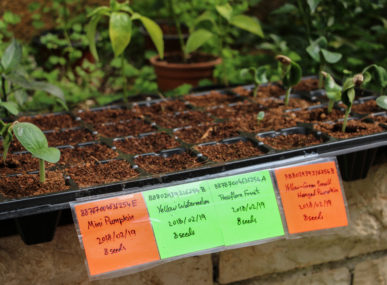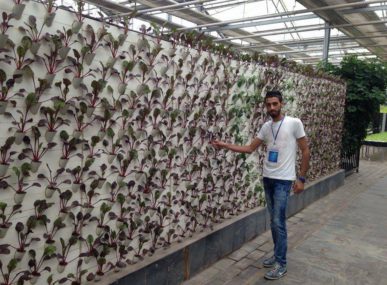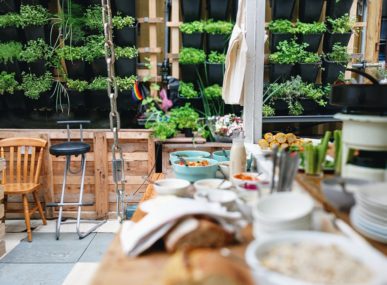The story behind Bustan Aquaponics begins not in revolutionary Cairo, but on the British Virgin Islands — a small Carribean archipelago just off the coast of Puerto Rico. Aside from glorious weather (not to mention taxation) conditions, the island nation offers a pioneering workshop on the science of commercial aquaponics. The course explains how to match marine life with appropriate plants, such that both will flourish in a healthy environment.
Armed with technical insight, Farrag began to set up his own pilot aquaponics system on the outskirts of Cairo in the summer of 2011. After 18 months of trial and error learning, along with intense market research, the Bustan Aquaponics team had created three operational facilities to service an established customer base. “We made lots of mistakes, but we could set [an aquaponics business] up in three months now,” chuckled Farrag.



